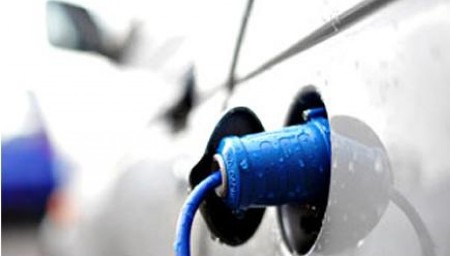Energy harvesting has become vital for the electric vehicles to overcome the present inadequate energy availability to traverse long distances and to avail the eco-friendly benefits provided by them.
The batteries that are fitted into the EVs costs nearly 50% of the total car value and the power from them is also used for managing the instrument panel, climate control and lights thus leaving less power for running. The best alternative seems to be charging the batteries in all possible ways to improve their storage and distance coverage.
 Use of energy harvesting to charge traction batteries
Use of energy harvesting to charge traction batteries
IDTechEx, a Cambridge, MA-based company with offices at the UK and Germany, has brought out a report titled, ‘Energy Harvesting for Electric Vehicles 2011-2021’, The report published in the latest issue of Energy Harvesting Journal examines the methods for harvesting energy to charge the batteries in electric vehicles. It delves in detail about the failed attempts in the past to reap solar energy and how the present coverage of 160 km range inadequately meets the demanding customer requirements. It compares the two forms of energy availability in autonomous unmanned vehicles (AUVs) and three forms of energy harvesting in super yachts and suggests that EVs need to have a minimum of five forms of energy harvesting facilities.
The report discusses the available energies such as movement, heat, light, vibration and human power, which can be harvested by utilizing mechanisms such as electro-dynamic like that of a bi-cycle dynamo, piezoelectric as available in a batteryless gas lighter, thermovoltaics using Seebeck effect and photovoltaic solar cells. The batteries are suggested to retain the generated energy and deliver it in the right level and the right time. It provides details on the present attempts to join the two applications such as super-capacitors and rechargeable batteries into a single device known in names such as Asymmetric Double Layer Capacitors (ADLCs), bacitors and supercabatteries. According to the report, electromagnetic and photovoltaic happens to be the popular energy harvesting options while the thermoelectric and piezoelectric options are also underway with a range of their own usages.
The report discusses the replacement of wired actuators and sensors by wireless methods that use energy harvesting methods to cut down the weight of wiring and improve the range of mobility. It also mentions how the thin and flexible PV films can be wrapped all around the EVs and how power can be harvested from both light and infrared. It quantifies that the large trucks can generate up to one kilowatt of energy from the shock absorbers and mentions about the energy available from regenerative braking.
IDTechEx organizes the IDTechEx Energy Harvesting & Storage, show in Boston, USA, during 15 – 16 November, where the car companies such as Volvo and Ford and other companies who are currently engaged in developing regenerating technologies and energy harvesting methods will participate and provide insight on the developments.